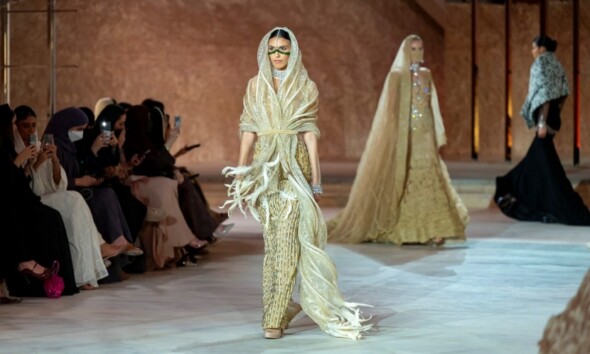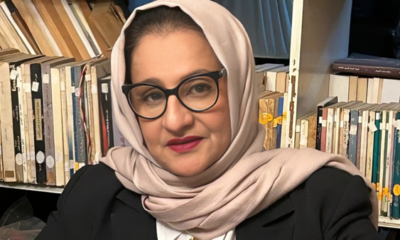Home » Interviews » Wael Habbal: The Soul’s Voice is its Mirror, and Only the Proper Means can Bring out its Purity and Magnificence!
Interviews
Wael Habbal: The Soul’s Voice is its Mirror, and Only the Proper Means can Bring out its Purity and Magnificence!
Published
3 weeks agoon
By
Huda Az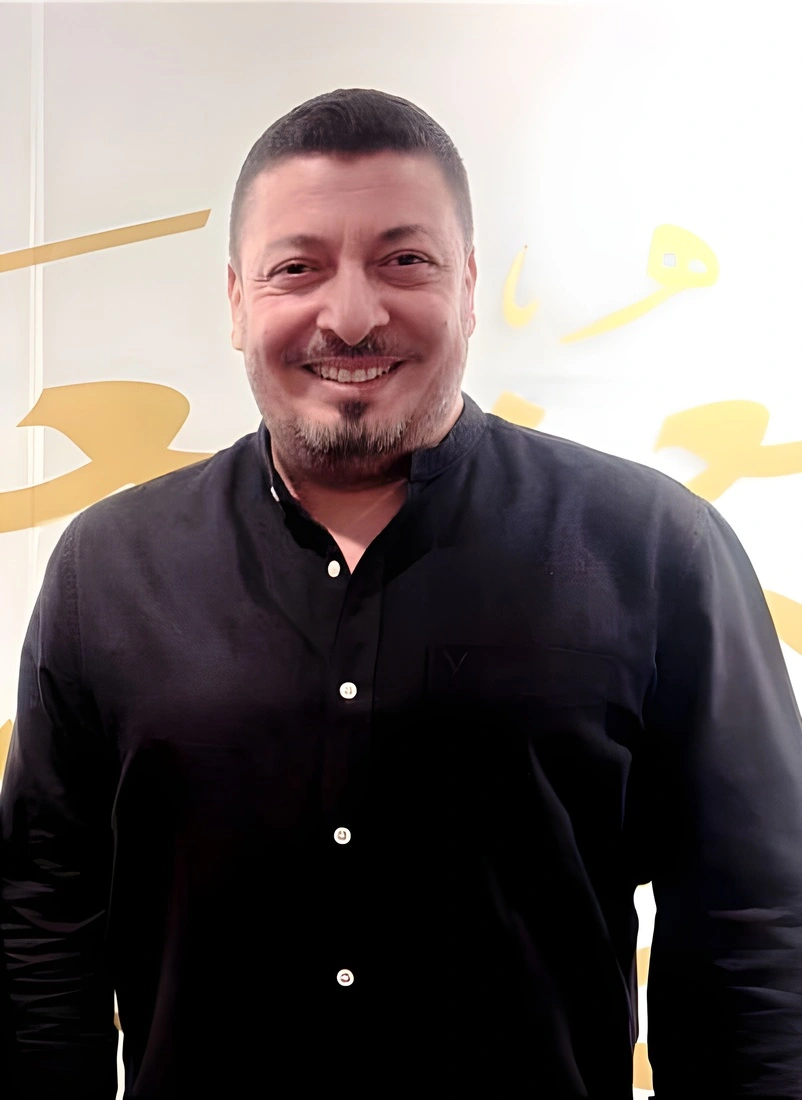
When you listen to the voice prompts on Google Maps, you might not realise that there is a unique human story behind this well-known voice—one filled with passion, creativity, and serendipity that led to extraordinary success. It is the voice that has accompanied millions of people, but many people do not recognise it.
Prepared and interviewed by Yana Al-Ali
Using one of the biggest technology platforms in the world, our guest today at Arabisk London—Saudi Arabia—is more than just a technical voice; he is an Arab success story.
Wael Habbal, whose voice has become ingrained in users’ daily lives, tells us about his extraordinary journey, including how he began, how he became the “Arabic voice of Google Maps,” and the difficulties he encountered in a world where impact, clarity, and accuracy are crucial.
We’ll explore the other side of the well-known voice in this exclusive interview, learning previously unheard-of information about the selection process’s backstory and its outlook on the development of Arabic voice AI.
What was the first unprofessional piece of work Wael Habbal commented on but was proud of?
“Your Eyes,” a poem by Nizar Qabbani, was the first amateurish piece I worked on and offered feedback on, and I’m still proud of it today. I believe this poem has a special place in my heart even now, since the microphone’s capabilities were more important at the time than the voice.
When people first heard your voice, how did they respond?
I tried to be honest about my beginnings and interests in my first piece. With both advantages and disadvantages, the discovery of a divine talent frequently has a significant impact on the individual. This is among the most crucial elements of achievement.
We establish a space of enduring memories when we start to identify and develop our talents. In fact, despite my inexperience, it was sincere and passionate; friends asked me to write for the first time.
Who or what prompted Wael Habbal to pursue a voiceover career?
My habit of holding a microphone to introduce people or record their voices dates back to my time at Damascus University in the 1990s and the parties there. It had never occurred to me that there was such a thing as voiceover. I only participated in university theatre, and I didn’t have any idea that I would end up becoming a voiceover artist; I just joined because everyone said my voice was lovely.
However, when Mr. World, the founder of CNBC in Dubai, came and heard my voice for the poem “Your Eyes Are My Rivers of Sorrows,” the story really got started. Since he didn’t speak Arabic, he came into the recording studio and asked me in English about the person’s voice in the recording. “You will be the official voice of CNBC Arabia,” he said right away when I told him it was my voice. In 2003, this marked the beginning of my voice-over career.
When was the first time you heard your voice being recorded? Then how did you feel? The majority of people dislike having their voices recorded, in particular.
Anyone who assesses their voice incorrectly, in my opinion, is losing their voice. For instance, even though it’s crucial, their role isn’t to judge voices when someone listens to their voice on WhatsApp. To send the voice to the other party with less weight and exquisite details, they chew it.
Naturally, though, using WhatsApp or other similar apps to assess my voice is disastrous. Since our voices are a mirror to our souls, they must be professionally evaluated because only then can their perfection and magnificence be fully appreciated.
I was generally cautious about loving my voice, and I wanted those close to me to hear it before experts did. However, I obviously enjoyed the recording process overall, not just my voice. Experts like the late Professor Abdelkader Yousfi, who was with me when I transferred from CNBC to Al Arabiya, would give me some criticism. He would always call me after hearing my voice and share his thoughts. This gave me constant motivation to improve and progress, and as the criticism subsided over time, I started speaking more honestly.
Which criticism affected your career the most in your early days?
Speaking Arabic is intimidating due to its strength. Since Arabic was a barrier for me at first, I took lessons from an Arabic language teacher for a while. I got a lot of negative feedback about the language on my first YouTube channel, and it was uneditable. I always expressed regret for my errors. But now we have proofreaders to ensure that I don’t make any mistakes.
Considering how famous Wael Habbal is now, do you still encounter criticism?
No. In all honesty, the Google Maps project changed the world and became so well-known that I never would have imagined. It went online in 2012 after I began it in 2011. I was in charge of the Arabic version and even proofread it. Because I put a lot of effort into it from the start, I’m proud to say that it contains no linguistic errors.
What guidance would you give yourself if you could go back in time to the moment you decided to pursue a career in voiceover?
I would advise my former self to be less afraid of what other people think and to believe in your abilities to achieve great things without the assistance of many people who aren’t specialists in voiceover as a science.
Has Wael Habbal ever been unaware of the use of his voice in a project? How did you respond to that?
An artificial intelligence system once used my voice to advertise training sessions. Although I didn’t think it was offensive, I thought it was too trivial to discuss.
What is a voiceover-related fact that you have never previously shared with others?
I am completely transparent. I impart all of my knowledge about voiceover to my students because there are no secrets in this science—only a methodology and research. But the key is to keep the gift God has given you intact. The profession is beautiful because no two voices are alike.
Have you ever come across a script that you didn’t agree with but were still compelled to comment on? How did you handle it, and what was the script?
Red lines that I believe in caused me to reject scripts. As we raise future generations, our words have an impact on them. It is a duty to speak. One of the scripts I refused to comment on was a cigarette advertisement.
What is the most peculiar fact you discovered while investigating the events you describe?
One fact from the documentary “In the Footsteps of the Arabs,” which we were reading, impressed me: the Battle of Dhi Qar was thought to have happened in Iraq, but an anthropologist verified that it actually happened in the Arabian Peninsula. Previously unexplored, this area remains unexplored and undeveloped to this day. This surprised me because amazing things are happening in the world.
Who, and why, would Wael Habbal choose to be the voice of a legendary person?
Khalid ibn al-Walid is the legendary person I would most like to voice. I believe that recording my voice as this outstanding character in a drama would be fantastic.
How would you characterise your voice if it were a musical instrument?
The cello would be my choice. It can bring us joy and sorrow.
If asked, which upcoming event would you expect to receive a response on?
Without any restrictions, the Syrian nationals relocated to Casablanca and then to the Kingdom of Saudi Arabia, where they received a warm welcome before safely returning to the enlightened Damascus of thousands of years ago. Since we deserve it, I hope everyone will soon accept us.
What would you say if your words became colours?
It wouldn’t have a vibrant appearance. We are the offspring of this time and this society. The majority of poems and texts focus on the past and its ruins, followed by the time when the coronavirus was causing suffering and how we overcame it. To hope for a better future and a wider variety of colours in our texts, these texts will not be colourful.
Since artificial intelligence doesn’t threaten the media or voiceover industries, I anticipate your response to be positive. However, how will you be able to trust it and safeguard yourself against it?
Similar to a tsunami, artificial intelligence is now a permanent fixture in our lives. Yet, as intellectual property, my group of voice actors and I are looking to record our voices here in the United Arab Emirates. When anyone uses it anywhere in the world, it becomes illegal.
Nevertheless, I think that no reputable business would tolerate the theft of a voice, even if it came from artificial intelligence. The voice may be used without legal repercussions if a contract has been reached with a particular business. I, for one, disagree with this.
What would you say if I asked you to record a voice message that everyone will hear in a century?
I would say: “We were here before you, Adam’s son. The civilisation we established was a failure in many ways. We hope that you have progressed to the point where you are repairing everything that we have destroyed, beginning with us as a human structure and extending to everything that this human structure uses. We also hope that the great civilisations will revert to themselves.
What do you want people to remember about Wael Habbal forever?
A selection of my writings will be available for listening, such as one of the voices authorised by the General Presidency for the Two Holy Mosques, which helps new pilgrims and gives them enough information for the Hajj and Umrah. Additionally, there is Google Maps. I hope that having a voice in these projects will be beneficial.
Which word, and why, would best describe Wael Habbal’s legacy and serve as motivation for upcoming voice performers?
Follow your space and explore it through to the end to get the outcome you want and, ultimately, happiness. For someone with a strong sense of passion and belief in their abilities and interests, this is simple.
Read more: Dr. Hassan Al-Nemi: Politicians’ Choices Have Power, and so Do the Words of Intellectuals!

The “New Square” Alters the Modern Life’s Notion in Riyadh

Sindalah: Luxury Cruising Tourism in KSA
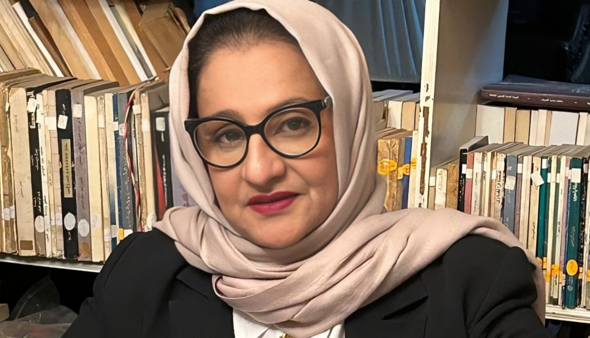
Malha Abdullah, Dean of the Saudi Theatre: The Crown Prince is the Vision’s Creator and Innovator, and there are Opportunities to See a Theatre Beneath Every Rock

Malham Airport Joins KSA’s General Aviation Services Realising Vision 2030
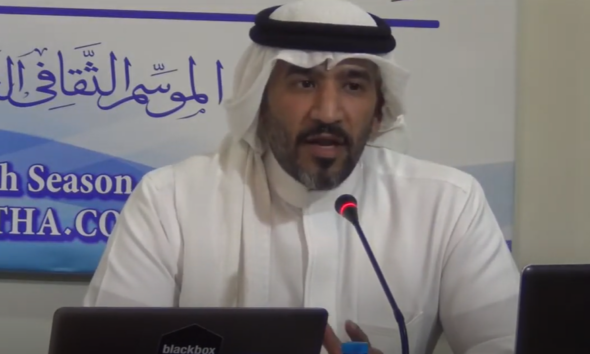
Ahmed Al-Badr the Saudi Businessman
